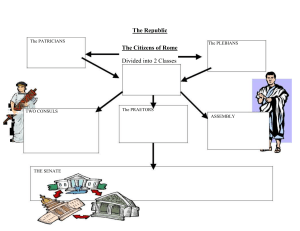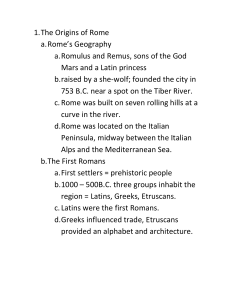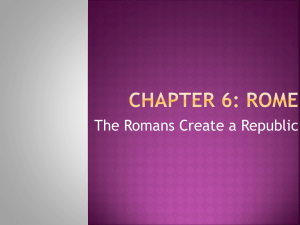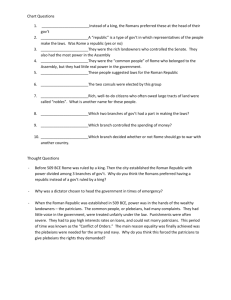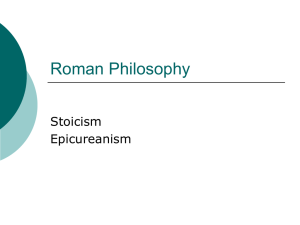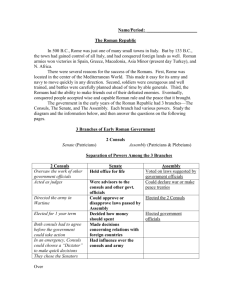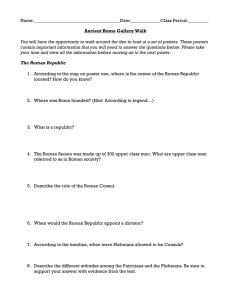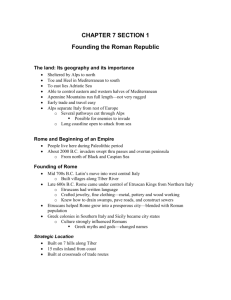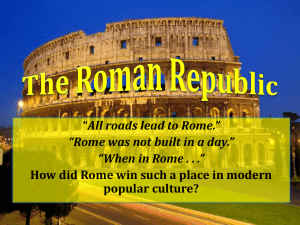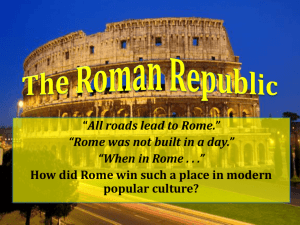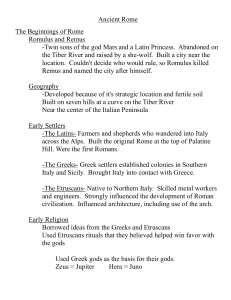Ancient Rome Notes
advertisement
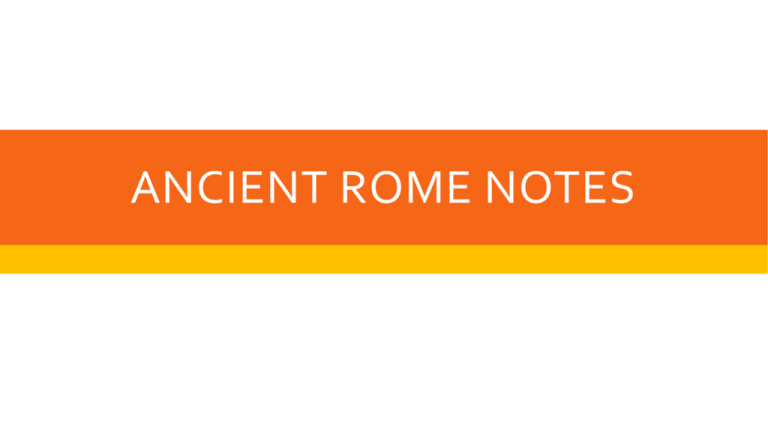
ANCIENT ROME NOTES THE IMPORTANCE OF ROME Considered to be the start of Western Civilization Was one of the first and largest political empires to ever exist in our world Their laws and language (Latin) was passed on to other civilizations Was used as the main means of spreading Christianity throughout Europe Time Frame: 753 BC- Around 400 AD SOCIAL STRUCTURE Patricians rich landowners who inherited their power and social status; held most of the power in Rome Plebeians commoners, artisans, and merchants who made up the majority of the population; citizens who could vote, could not hold important government positions Slaves captured peoples during the wars; made to work on the latifundia, huge estates; were one-third of the population Patricians Slaves Plebeians DAILY LIFE Rich - had country estates (villas), enjoyed a high quality of life Poor- lived in apartment houses, no running water, jobless, lots of fires in Rome, very dirty Slaves- slaves almost no rights, worked in homes of rich and on farms or in the army All enjoyed the games at Colosseum (circuses, gladiators, animals) Family life- strong family values, government rewarded parents who had many children, father had absolute power, women's role depended on wealth GOVERNMENT Roman Republic- a system of government in which people can vote on who will rule them. In Rome, there were several types of leaders. 2 Consuls— elected (chosen) by the people through a vote. The consuls oversaw other government officials, directed the army, and acted as judges. The two consuls had to agree in order to take action. Senate— Were all patricians, chosen by the consuls, were advisors to the consuls, approved laws passed by the Assembly, decided how money should be spent, had influence over the consuls and army Assembly— Largest branch of government made up of Plebians and Patricians. voted on laws suggested by government officials, could declare war or make peace treaties, elected the 2 Consuls ACHIEVEMENTS Architecture and Technology- used arches and columns, invented concrete Built Colosseum (50,000 people, used for fighting, and ship battles), Circus Maximus for chariot racing, aqueducts Roman roads- "All roads lead to Rome" Roman Law- an early form of the Bill of Rights (Justinian Code), have to face your accusers, "Beyond a shadow of doubt" STOP AND THINK What you do you think about the Romans? How do they compare/contrast with other civilizations we have discussed?
